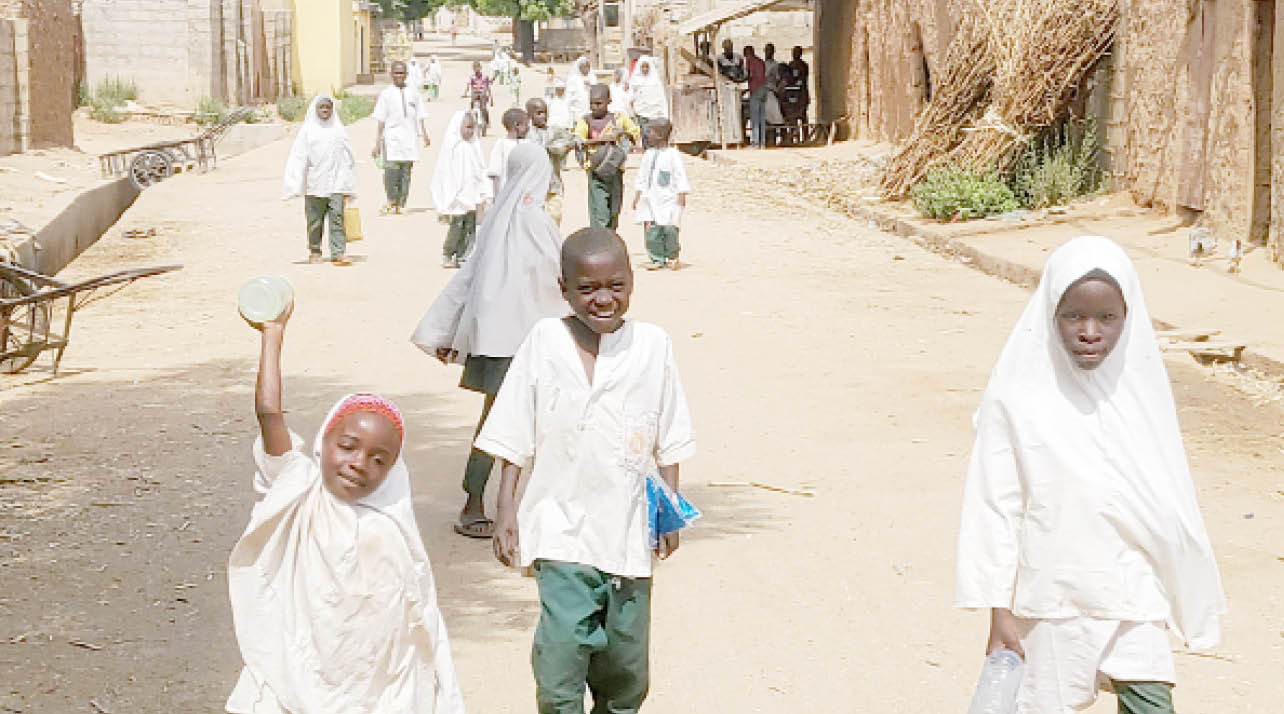Education is a lifeline, a bridge to the future that should remain unwavering in times of uncertainty. Yet, recent decisions by the governments of Kano and Edo states to keep schools closed in the wake of the fuel crisis and economic challenges have raised serious concerns. These decisions, while undoubtedly made with consideration of the broader economic situation, risk long-term consequences for the educational development of millions of children. Education is a fundamental right that must be safeguarded, even in the face of hardship.
Kano State has long been grappling with one of the highest rates of out-of-school children in Nigeria, with millions of children out of school. Many of these children face barriers such as poverty, early marriage, and child labour, all of which could worsen due to the rising costs of living. The additional burden of uniforms, textbooks, and other supplies may push more families into a situation where sending their children to school becomes untenable.
The situation in Edo State, while not as dire in terms of out-of-school numbers, still paints a worrying picture. The state has made strides in educational reform in recent years, and yet this decision to close schools in response to economic strain undermines that progress. Both states’ decisions signal a dangerous trend, one where the future of our children’s education is being held hostage by external economic factors.
To place the current situation in a broader global context, we must look to other regions that have faced far greater challenges yet continue to prioritize education. Conflict-torn nations like South Sudan, the Democratic Republic of Congo, Palestine and Ukraine have kept their schools open, even under the direst of circumstances. These countries understand that education is not just a means to personal advancement but a tool for national stability and growth. By ensuring that schools remain operational, even in conflict zones, they have demonstrated their commitment to safeguarding the future of their youth.
- Duty-free solar panels classification in line with global standards – Customs
- Israel kills 248 Palestinians in ‘safe zones’ as rights groups condemn siege
Nigeria is no stranger to hardship. The COVID-19 pandemic forced a nationwide closure of schools, but many nations, Nigeria included, managed to adapt through remote learning and other innovative solutions. Yet, in 2024, we find ourselves unable to overcome the challenges posed by a fuel crisis.
Instead of closing schools, we should be investing in ways to keep them open. Perhaps there is a lesson to be learned from countries like Yemen, where, despite ongoing conflict, schools continue to operate.
The decisions by the Kano and Edo state governments, however well-intentioned, carry profound implications. School closures will lead to lost learning opportunities, increased dropout rates, and a generation at risk of being left behind. We cannot afford to place education on the back burner. When we do, we endanger the future of our children and, by extension, the future of our country.
It is imperative that both Kano and Edo urgently reconsider their stance on school closures. Rather than succumbing to external pressures, the focus should be on implementing policies that ensure education remains uninterrupted. One such policy is the Universal Basic Education (UBE) law, which guarantees free and compulsory education for all children. Enforcing this policy in these trying times would demonstrate a firm commitment to education as a right, not a privilege that can be suspended when times are tough.
We must also consider the longer-term consequences of these closures. For every day that a child misses school, the likelihood of their returning diminishes. The psychological impact of this disruption cannot be overstated, especially for children already vulnerable to dropping out. Schools offer more than just academic instruction; they provide structure, socialization, and, for many children, a haven from the economic and social challenges of their daily lives.
The governments of Kano and Edo states must put education at the forefront of their agendas. The economic challenges we face today are undeniable, but they should not come at the expense of our children’s education. Schools must be reopened, and steps should be taken to ensure that they remain open, even in the face of adversity. Our children’s future depends on it, and we cannot afford to hold their education for ransom.
Tijjani Mukaddas can be reached via

 Join Daily Trust WhatsApp Community For Quick Access To News and Happenings Around You.
Join Daily Trust WhatsApp Community For Quick Access To News and Happenings Around You.


